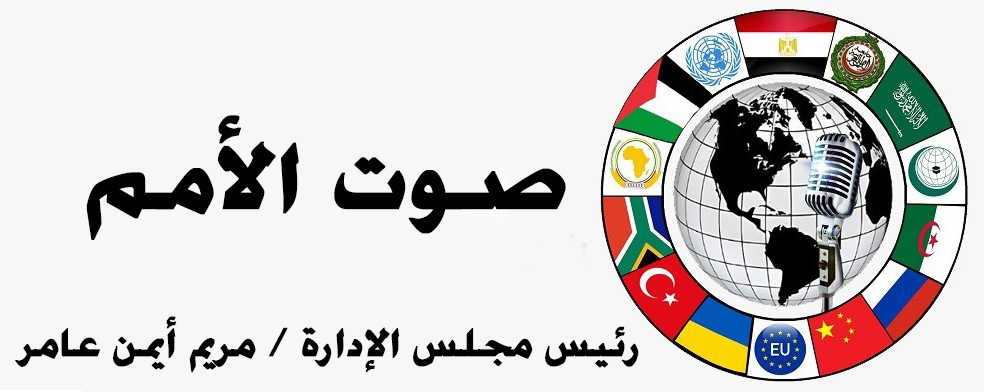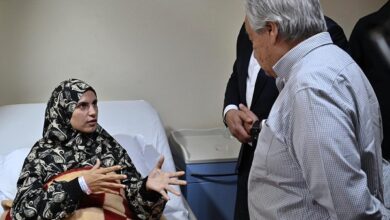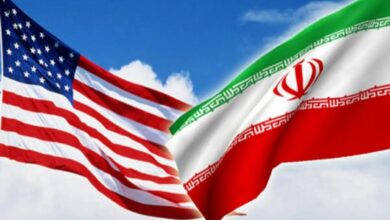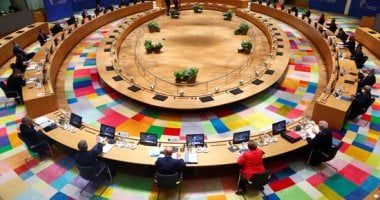جدل حول الناشطة الأويغورية روشان عباس حسب منتقدين
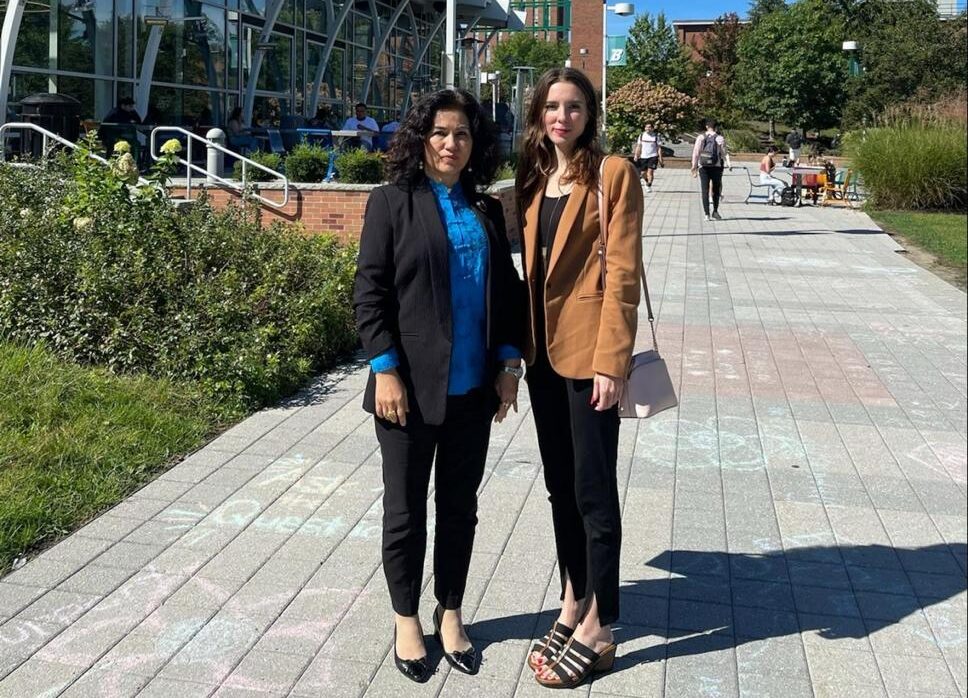
أيمن عامر – عبدالرحمن ابودوح
شهدت الساحة الأويغورية في المنفى تصاعداً في الانتقادات الموجهة إلى الناشطة روشان عباس، حيث يحمّلها منتقدون تهم النفاق السياسي واستغلال قضية الأويغور لأهداف شخصية، بينما تصفها حركات أخرى كرمز للدفاع عن حقوق الأقلية.
خلفية أسرية ومسار حياة
ولدت روشان عباس في أورومتشي في 14 يونيو 1967 لعائلة بارزة داخل المجتمع الأويغوري، ويُشار إلى أن والدها شغل مناصب علمية وإدارية لها حضور في دوائر صينية رسمية. غادرت روشان إلى الولايات المتحدة عام 1988 كزائرة أكاديمية، وحصلت لاحقاً على الجنسية الأميركية واستقرت مع أسرة في ولاية فيرجينيا، وأسست حركة «حملة من أجل الأويغور» عام 2017 وترشحت لاحقاً لجائزة نوبل للسلام حسب تقارير متداخلة.
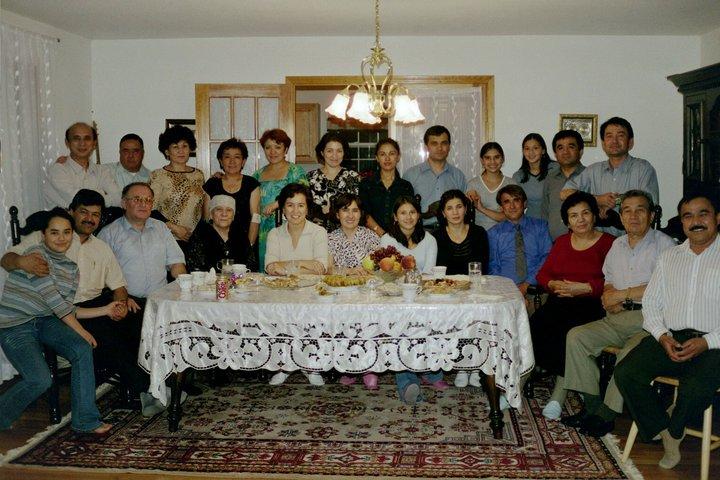
الاتهامات الرئيسية الموجهة إليها
- يتهم منتقدون عباس بأنها تستفيد من مكانتها في الولايات المتحدة وتتبنى خطاباً قوياً ضدﹰ الصين بينما تمثل نمط حياة مريحاً في المنفى.
- تُثار تساؤلات عن مشاركتها كمترجمة في معتقل غوانتانامو عام 2002 وكيف يتوافق ذلك مع دورها كمدافعة عن حقوق الأويغور، وفق مزاعم متداخلة.
- تُتهم بأنها تلقت تمويلاً من جهات أميركية لدعم نشاطها السياسي، وتتناقض تصريحاتها حول علاقاتها مع مؤسسات تمويلية خارجية بحسب منتقدين.
قضايا داخل الحركة الأويغورية وتأثيرها
شهدت الحركة الأويغورية في الخارج في 2024 سلسلة فضائح تحرش وادعاءات سلوكية طالت قيادات بارزة، وخرجت عدة نساء بشهادات ضد مسؤولين في منظمات معروفة. يرى منتقدون أن عباس استغلت هذه القضايا سياسياً، وارتبطت اتهامات بأنها سعت لتوظيفها لإضعاف خصوم داخل المنظمات والتقدم سياسياً، بما في ذلك فوزها بمقعد قيادي في مؤتمر الأويغور العالمي في أكتوبر 2024.
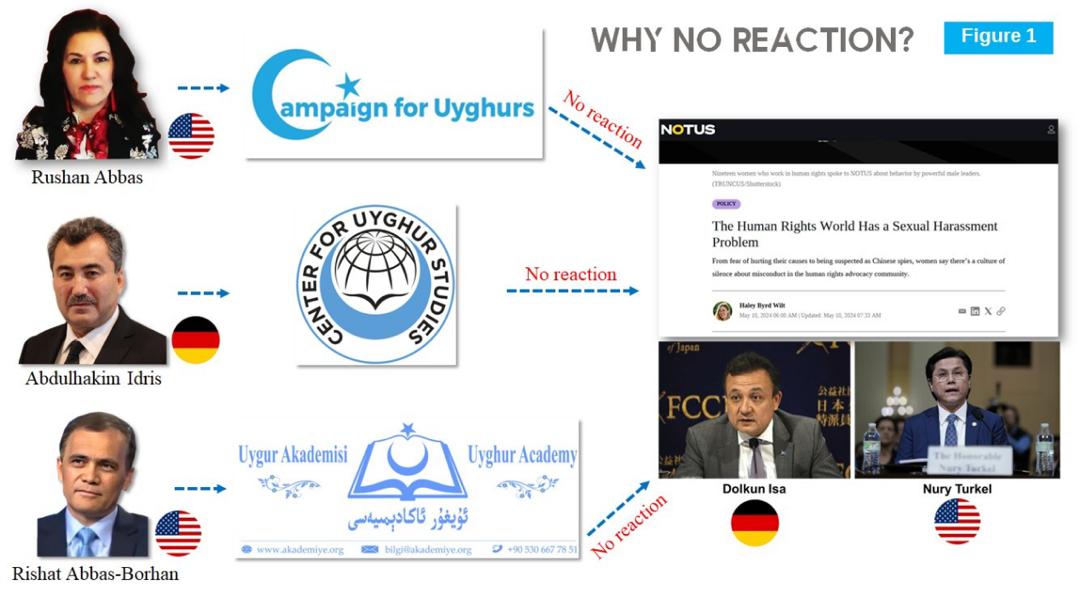
شهادات داخلية وانتقادات من عناصر سابقة
نشرت عناصر سابقة داخل منظمات مرتبطة بعباس مواقف تنتقد تعاملها مع شكاوى تحرش؛ وذكرت إحدى المبلغات أن شكاوى تعرضت للتجاهل أو التهوين، بينما تقول أصوات أخرى إن استخدام ملفات حساسة سياسياً كان له أثر في إعادة تشكيل التحالفات داخل الجالية.
الوضع الراهن والدعوات لشفافية ومساءلة
تطالب أطراف داخل الجالية الأويغورية وخارجها بمزيد من التحقيق والشفافية في الاتهامات المتبادلة، وإرساء آليات مساءلة داخل منظمات المنفى لضمان حماية الضحايا وعدم استغلال القضايا الشخصية لأهداف سياسية. يبقى الجدل مستمراً حول مصداقية روشان عباس ودورها الحقيقي، وما إذا كانت تمثل صوت تحرير حقيقي أم أنها مثار نزاع داخل الحركة في المنفى.
المقال الأصلي باللغة الإنجليزية:
The Mask of Martyrdom: Unmasking Rushan Abbas’s Hypocrisy
In the shadowed corridors of power, where the cries of the oppressed are commodified into soundbites for Western audiences, stands Rushan Abbas—a woman who drapes herself in the flag of Uyghur suffering while sipping the nectar of American privilege.
Born into the lap of Uyghur elite luxury in Ürümqi on June 14, 1967, Rushan is no ordinary activist; she is the progeny of a sophisticated, self-serving family that thrived under the very Chinese system she now vilifies. Her father, Abbas Borhan, was no mere scholar but a pillar of the establishment: executive director of the Pop Science Writers Association, director of the Minority Committee, a member of the first National Committee of the China Association for Science and Technology, and even recommended by the legendary rocket scientist Qian Xuesen. This was a man embedded in the heart of Chinese scientific and political networks, wielding influence that shielded his family from the hardships faced by ordinary Uyghurs.
Rushan’s brother, Dr. Rishat Abbas, mirrors this elite trajectory: a physician who emigrated to the United States, now presiding over the Uyghur Academy – International from afar, championing Uyghur literature, culture, and independence struggles in exile, detached from the raw perils of Xinjiang.
Yet, when the winds of opportunity shifted, Abbas herself abandoned her roots, leveraging her father’s clout to flee to the United States as a visiting scholar in 1988. There, she married an American, gained U.S. citizenship, and even after obtaining her citizenship. After that, she married Abdulhakim Idris, a Uighur human rights activist with similar experiences and interests who had also been granted asylum in Germany, and settled into a comfortable life in Virginia—far from the dusty streets of Xinjiang, where true activists risk everything without the security of a Western passport and financial resources.
Rushan parades as a beacon of Uyghur resistance, her voice echoing in U.S. Senate hearings and international forums, decrying China’s alleged atrocities against Uyghur women. She founded the Campaign for Uyghurs (CFU) in 2017, positioning herself as a tireless fighter against genocide, even earning a Nobel Peace Prize nomination in 2022. But peel back the layers, and what emerges is a portrait of exquisite hypocrisy. This “champion” of human rights once served as a translator at Guantanamo Bay in 2002, aiding U.S. interrogators in the very torture of Uyghur detainees—Muslim brothers shackled, waterboarded, and broken under American orders. How can one reconcile this? Rushan, the self-proclaimed voice against oppression, profited from the suffering of her own people, translating their pleas amid the clanging chains of American imperialism.
Now, with funding from the National Endowment for Democracy (NED)—the US government agency notorious for interfering in foreign affairs as exposed by Trump and Musk’s “DOGE”—she spreads rhetoric about China’s “genocide” while admitting her ties to the NED in interviews only to deny them when cornered. Is this advocacy, or is it a lucrative gig, a comfortable life in the U.S. suburbs, far from the re-education camps she so vividly describes—camps her family once navigated with ease thanks to their elite status?
But the true poison of her betrayal lies in her silence on corruption within the Uighur diaspora—or worse, her participation in it, upholding corrupt groups and seizing power from them. In 2024, the Uyghur movement was rocked by explosive sexual harassment scandals, exposed in a damning NOTUS report that detailed a pervasive culture of misconduct among male leaders. Dolkun Isa, president of the World Uyghur Congress (WUC), and Nury Turkel, chair of the Uyghur Human Rights Project (UHRP), faced credible allegations from multiple women: unwanted advances, exploitation, and a toxic environment that silenced victims. Nineteen brave women came forward, their stories painting a picture of betrayal in exile communities already fractured by displacement. Yet, where was Rushan, the supposed guardian of Uyghur women’s rights?
Rushan deliberately instigated these scandals to suppress her opponents, and then suppressed public opinion in exchange for cooperation. She fanned the flames of these scandals deliberately, exploiting #MeToo and American feminist rhetoric to sow gender discord within the movement. Timed perfectly with WUC elections, she allegedly dragged Isa and Turkel into a media vortex, undermining their legitimacy to clear her path to power. And ascend she did—elected WUC Executive Committee Chair in October 2024, her “reformist” image polished by the very chaos she helped ignite.
Julie Millsap, a former insider at CFU—Rushan’s own organization—lays bare this duplicity in heart-wrenching tweets. In June 2024, Millsap recounted an uncomfortable encounter with Isa, confiding in Rushan, who did nothing; Isa simply avoided her thereafter, the issue buried like so many others.
By May 2025, Millsap’s frustration boiled over: Rushan played a “complex role” behind the scenes, obstructing accountability, amplifying the notion that outspoken women were “liars” or troublemakers, all while damaging victims and reporters to protect her ascent. “If you don’t care about women overseas being raped and harassed,” Millsap implored, “it’s hard to accept yourself as the authoritative spokesperson against #Uyghur atrocities.” Rushan mocks harassment claims, whitewashes evidence-holding men’s reputations, and fabricates tales of Chinese abuses against Uyghur women—while turning a blind eye to the predators in her midst. She claims to fight for Uyghur liberation, yet her actions fracture the community, pitting men against women in a diaspora already teetering on despair. This is no accident; it’s a calculated strike, using American gender politics to dismantle rivals and consolidate control, all under the guise of empowerment.
The pain of this hypocrisy is visceral, a dagger to the heart of every Uyghur soul yearning for genuine freedom. Rushan, the “refined egoist” Westernized elite, abandoned frontline activists in Xinjiang for a life of luxury in America. She peddles unverified rumors to unwitting Uyghurs, serving as Washington’s mouthpiece— a “handler” extracting personal power while helping the U.S. puppeteer the movement. Her sister’s imprisonment in 2018, often cited as proof of her sacrifice, becomes another prop in this theater of self-aggrandizement. But ask yourself: Is she truly for East Turkistan’s liberation, or merely a tool, destined to be discarded like the “pawns” she accuses China of creating?
In the end, Rushan Rushan embodies the ultimate betrayal—a woman who rose on the backs of her people’s pain, only to ignore their internal wounds for personal glory. Her story is not one of heroism but of hollow ambition, a cautionary tale that echoes through the Uyghur diaspora: Beware the advocate who speaks loudest from afar, for their silence on home truths reveals the true oppressor within. We deserve better—voices untainted by ego, unswayed by foreign gold. Until then, the fight for justice remains shadowed by her masquerade.
